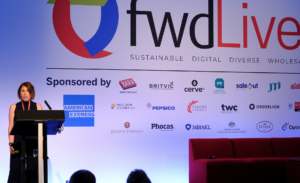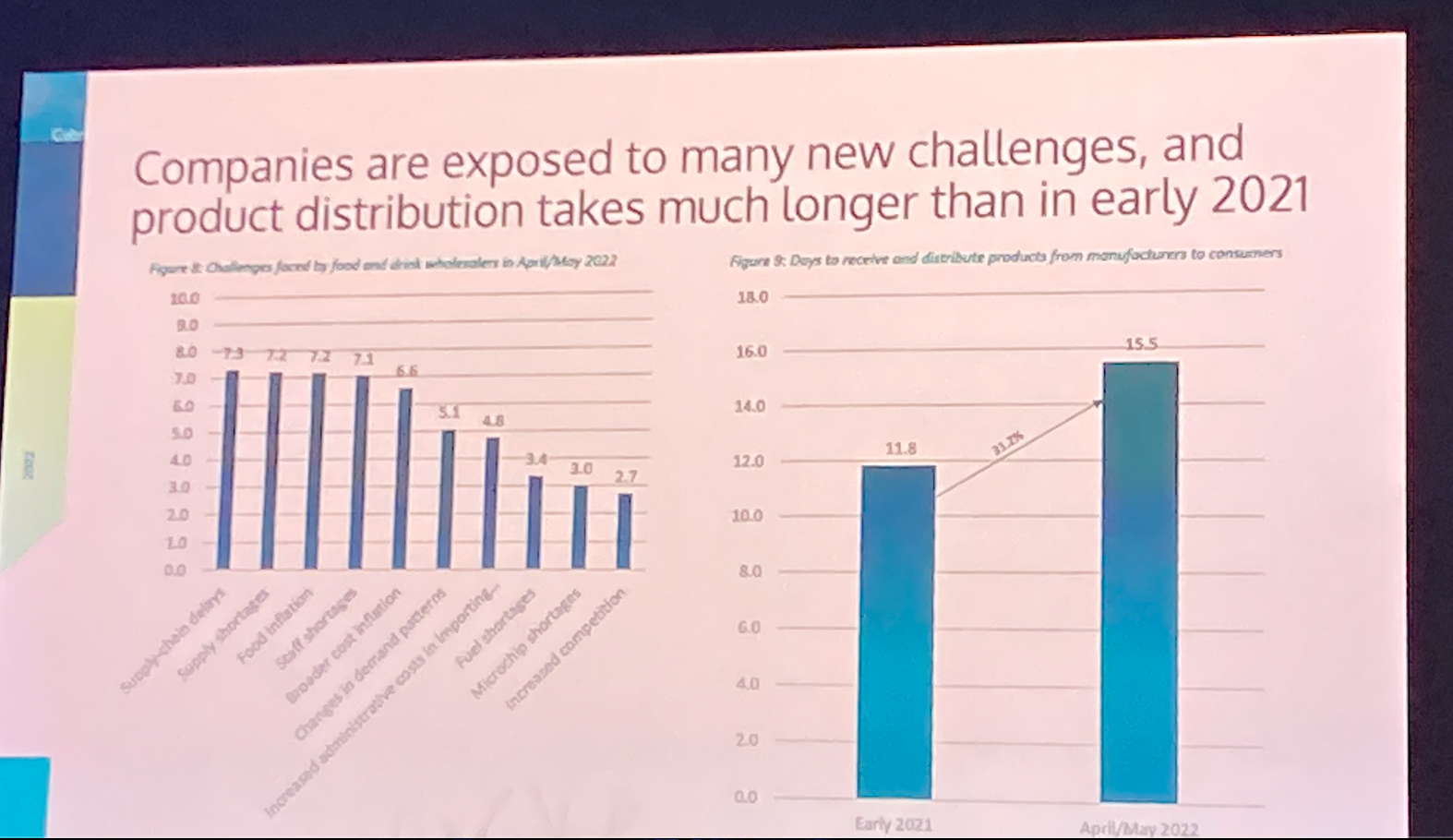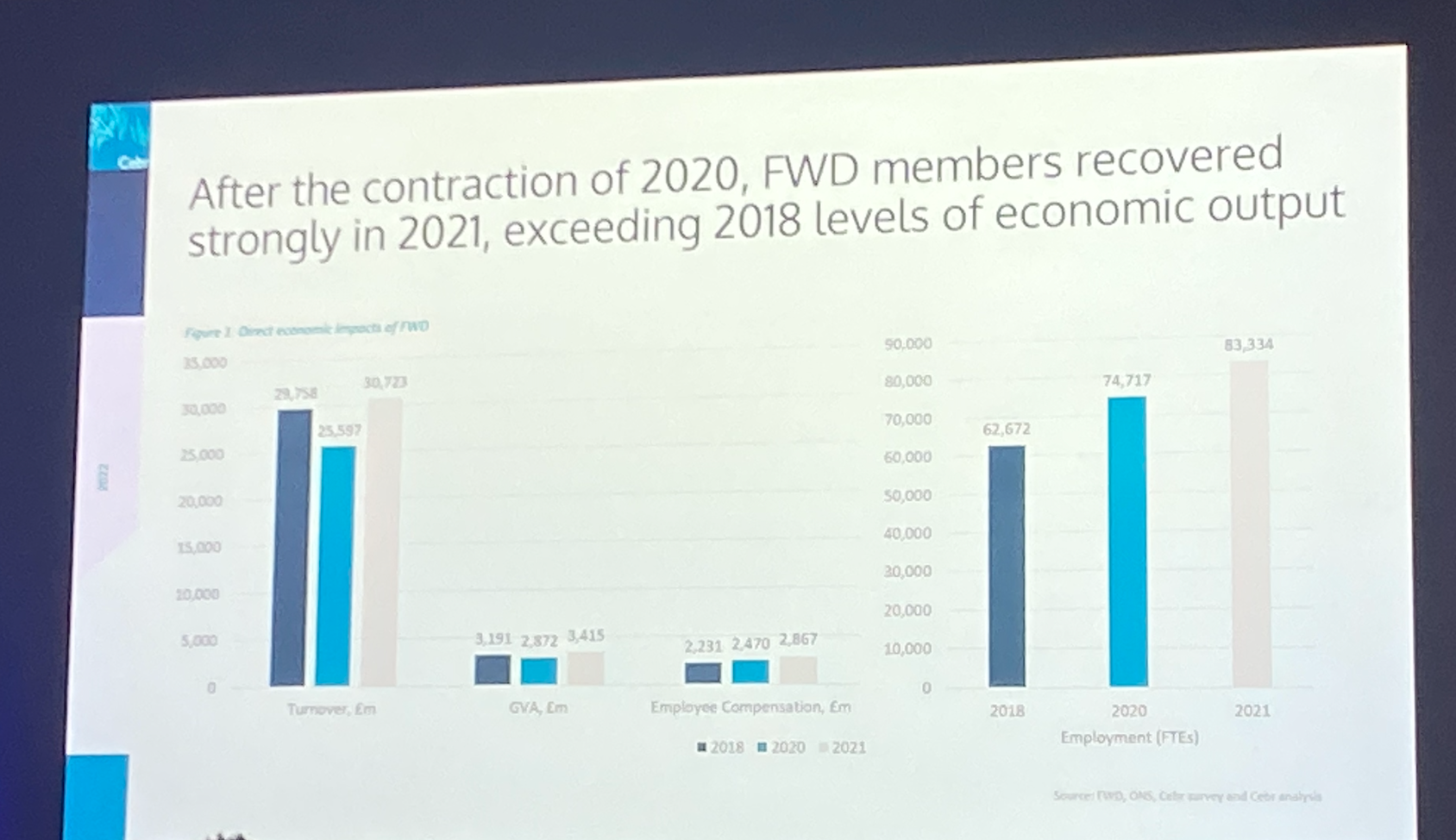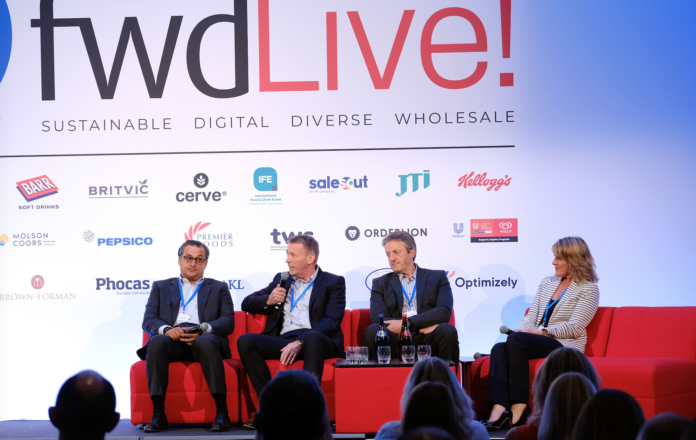The cost of living crisis, a return to pre-Covid levels and the growth of delivered were three of the key topics discussed at this year’s FWD Live event. Wholesalers and suppliers from across the UK were in attendance at St. Georges Park in Burton-Upon-Trent to hear from leading industry figures and discuss the best ways to move forward as an indsutry.
Here are ten things learnt at the conference:
1. A cut to fuel duty and VAT on food were voted as the two key practical interventions the government should make to help maintain affordable food supply, as part of a survey completed by the delegates in attendance.
 2. Sustainability practises need to be shared across the entire the industry for the sector to evolve ethically. “It’s a competitive disadvantage for wholesalers if they don’t collaborate on sustainable practises and data,” said Zero Carbon Forum founder Mark Chapman.
2. Sustainability practises need to be shared across the entire the industry for the sector to evolve ethically. “It’s a competitive disadvantage for wholesalers if they don’t collaborate on sustainable practises and data,” said Zero Carbon Forum founder Mark Chapman.
 3. The SWA is taking its sustainability project a further step forward with chief executive Colin Smith revealing that it will be appointing a head of sustainability as part of its ongoing commitment to the decarbonisation of the Scottish wholesale industry.
3. The SWA is taking its sustainability project a further step forward with chief executive Colin Smith revealing that it will be appointing a head of sustainability as part of its ongoing commitment to the decarbonisation of the Scottish wholesale industry.
4. Henderson Foodservice managing director Cathal Geoghem called for a business voice to be added as part of the political discussions relating to the Northern Ireland protocol.
5. There was some slight disagreement on the future of the rapid delivery market, with Mark Jones, sales director of Blakemore predicting the rate of growth to slow and the market to consolidate, whereas Dael Links of Snappy Shopper forsees an upwards curve over the next few years.
6. Research from TWC shows an appetite for the rapid delivery of grocery products. It’s findings show that 51% of consumers found the idea of rapid grocery delivery appealing, rising to 69% of those living in London.
7. “There will always be two key routes to market, and Parfetts will always support the cash & carry sector, as well as delivered” said Gurms Athwal. He also added the growth of delivered leads to greater cash flow problems, despite its obvious overall benefits.
8. Confex’s managing director Tom Gittins outlined Amex’s benefits to the industry: “It is a neat solution that helps solve a lot of financial issues across the wholesale spectrum,” he explained. In the same panel, Creed managing director Philip De Ternant said there is less loyalty to suppliers compared to three years ago: “We’re more willing to buy from what is available now.”
9. An economic study revealed a 31.2% increase in the days it takes to get products from manufacturers to consumers over the past 12-14 months from 11.8 to 15.5 days on average.

10. A study analysing the economic contribution of wholesale shows the industry performing above pre-Covid levels, with employment in the sector and turnover now surpassing the 2018 figure.









